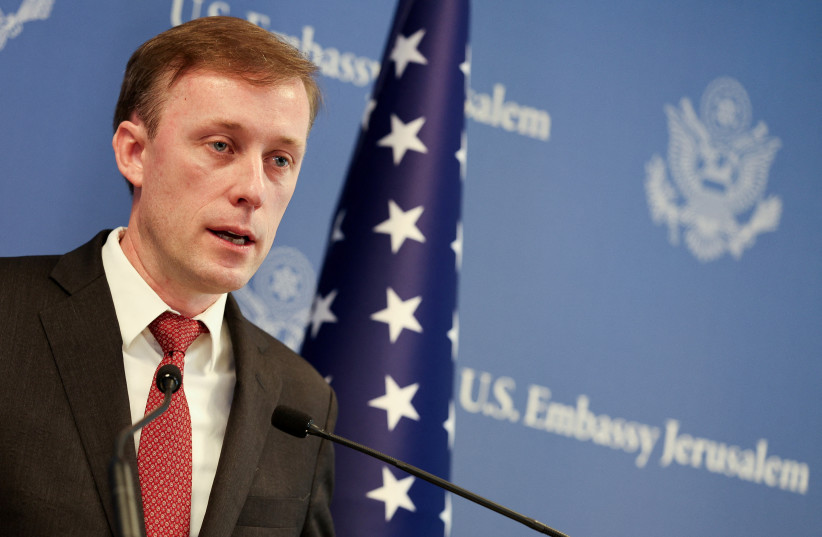After US-Israel tensions peaked last week with Senate Majority Leader Chuck Schumer’s call for new Israeli elections, President Joe Biden held a 45-minute phone call with Prime Minister Benjamin Netanyahu on Monday in an apparent bid to calm tensions. By all accounts, this did not happen.
What’s needed now is for both leaders to climb down from their high horses and work together to expedite the release of the remaining 136 hostages still held in Gaza.
According to an Israeli official, Israel’s delegation to talks in Doha this week, headed by Mossad chief David Barnea, was authorized by the security cabinet to discuss – via US, Egyptian, and Qatari mediators – a six-week Gaza truce during which Hamas would free 40 hostages, and Israel would release Palestinian prisoners.
In Biden’s conversation with Netanyahu, their first since February 15, the US president is said to have come out strongly against an expanded Israeli ground operation targeting Hamas in Rafah. “A major ground operation there would be a mistake,” US National Security Adviser Jake Sullivan later told reporters in a briefing. “It would lead to more innocent civilian deaths, worsen the already dire humanitarian crisis, deepen the anarchy in Gaza, and further isolate Israel internationally.”
According to Sullivan, Biden told Netanyahu that while he supported the defeat of Hamas, which he called “an evil terrorist group,” Israel needed a strategy that worked. “That strategy should not involve a major military operation that puts thousands and thousands of lives, civilian innocent lives at risk in Rafah,” he said. “There are ways for Israel to prevail in this conflict, to secure its long-term future, to end the terror threat from Gaza and not smash into Rafah.”

Netanyahu reportedly agreed to send a high-level team to Washington to discuss US concerns about an IDF operation in Rafah. Although the prime minister’s media statement after the call with Biden was terse, he mentioned the hostage issue. “We discussed the latest developments in the war, including Israel’s commitment to achieving all of the war’s goals: Eliminating Hamas, freeing all of our hostages, and ensuring that Gaza never gains constitutes a threat to Israel – while providing the necessary humanitarian aid that will assist in achieving these goals,” the statement read.
Netanyahu was incensed by Schumer’s 45-minute speech on March 14, in which the highest elected American Jewish official said Netanyahu had “lost his way” and branded him as “an obstacle to peace.” In an interview with CNN, Netanyahu said: “It’s inappropriate to go to a sister democracy and try to replace the elected leadership there. That’s something the Israeli public does on its own. We are not a banana republic.”
When reporters asked about the speech a day later, Biden backed Schumer, saying, “He made a good speech. He expressed serious concerns, shared not only by him but by many Americans.”
Following his State of the Union address, Biden was caught on a hot mic saying that Netanyahu needed a “come-to-Jesus moment.” Explaining that remark to MSNBC, Biden said he believed that Netanyahu was “hurting Israel more than helping Israel.”
Republican candidate Donald Trump accused Biden of abandoning the Jewish state. “He dumped Israel,” the former president told Fox News. “He just said essentially that Bibi Netanyahu should take a walk.”
Despite support for Israel, Biden's criticism of Israel is steadily growing
Although Biden robustly backed Israel’s right to defend itself after the October 7 atrocities and rebuffed calls in his party to impose conditions on the flow of US arms to Israel, he has grown increasingly critical of Netanyahu.
This is not the first spat between the US and Israel, traditionally the strongest of allies, and it probably won’t be the last. It is clear, however, that what is referred to in diplomatic jargon as “daylight” between the countries serves neither while feeding the hatred of our mutual enemies.
Israel is becoming a wedge issue in the US presidential campaign – and this is not helpful to the Democrats or the Republicans – or to Israel. Let’s not lose sight of what’s important here. Both the US and Israel share vital values, one of which is doing everything possible to free our captives.
Perhaps both Biden and Netanyahu might be inspired by former President Barack Obama's memorable words in 2012: “We don’t turn back. We leave no one behind. We pull each other up.”
